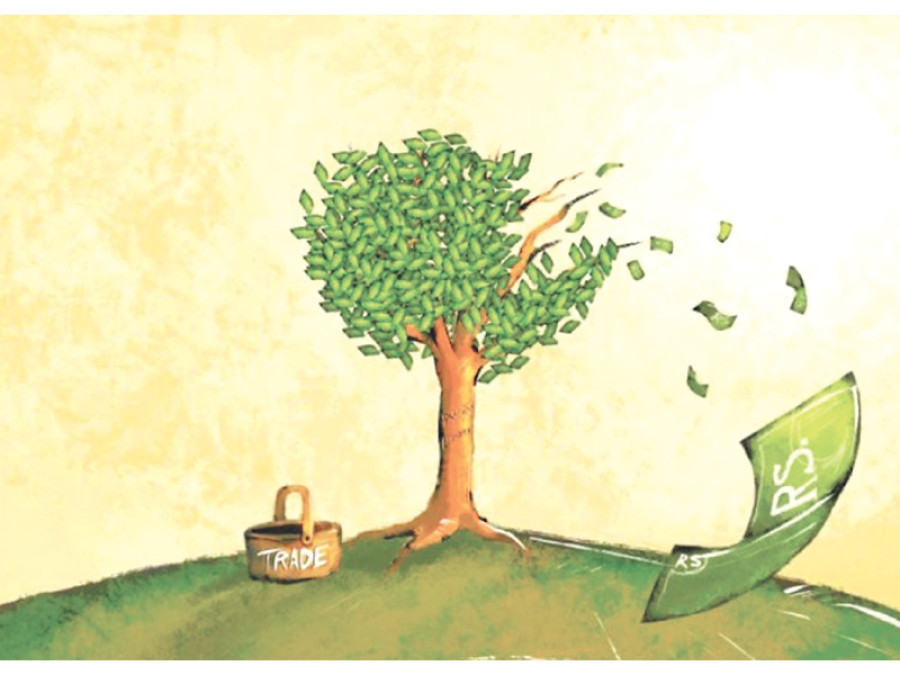Opinion
Trade not aid
Foreign investment, more than foreign aid, will help Nepal recover from the quake
Sumesh Shiwakoty
The government of Nepal hosted a donor conference in a bid to get international support for the country’s reconstruction following the devastating earthquake. The global community pledged $4.4 billion in aid, but the question that remains unasked is whether cash is what Nepal really needs. First, only half that money is grant and the rest is loan. So, we will be repaying the first half by allowing them to fulfill their long-term interests in Nepal, and as for the second half, we will be paying it back in full with interest.
Push for influence
It should be analysed why our neighbours India and China have pledged a huge amount, more than the World Bank and International Monetary Fund combined. That is because they have a greater interest in Nepal, and any laxity from one side will give the other side a chance to increase its influence. At the same time, Western countries are also looking for a chance to increase influence in Kathmandu. So, the more of this grant we accept, the more we will be allowing them to influence us. As far as the loan portion of the aid is concerned, a Washington-based financial reform organisation named Jubilee USA Network has pointed out that Nepal already owes $3.8 billion to foreign lenders. Accepting more loans means paying more interest which will continue to worsen our national economy.
Another negative aspect of foreign aid is that donors want to spend their money on short-term projects as they want immediate results. For example, aid groups spent more than $500 million on temporary shelters after Haiti’s earthquake, and now those temporary shelters have turned into permanent slums. A different study has shown that what has really helped Haiti to recover more than foreign aid is duty-free access for its textile goods to the US market. So it is important to let our development partners know that foreign aid alone cannot post-quake Nepal, and if they really want to help the country, this is how they can do so.
Invest in manpower
The international community can help Nepal by investing here. Investments in our human capital is also likely to go a long way. As an international student in the US, I have noticed that the world views of students who have grown up in a developed Western country and in a developing country like Nepal are completely different. If we can encourage our global partners to exchange more students through academic programmes, it will not only help our students to come back with innovative skills and fix some problems at home, but also provide a different world view and ideas to their students, which they can use to make a difference in their society. This will also attract foreign investment, since potential investors want to make sure that the country has the kind of manpower they need.
It is important to understand that other nations will come and rebuild our country because they all have their own problems. In the US, more than 43.6 million people are living in poverty. Indian officials believe that about 64 million people, or one in every six Indian city dwellers, are living in slums. While in China, the Guardian quoted former health minister Chen Zhu as saying that 350,000 to 500,000 people die prematurely every year as a result of bad air quality. So we should help ourselves to rebuild our country, and the best way is to find a common ground where we can work with our development partners by standing on the same bottom line.
Global collaboration
For example, the online library of the Central Intelligence Agency believes that Nepal has the capacity to produce 42,000 MW of commercially feasible hydropower. If we can create an environment to attract American companies to invest in our hydropower, we can use the energy to power industries in China and India. We can help China to cut air pollution by providing clean energy, and we can help India to fight poverty by providing cheap power so they do not have to depend on non-renewable energy sources. The US economy could also boom due to the business in Nepal. This will allow Americans to work on reducing their poverty rate, and we in Nepal will have many jobs so our young people will not have to go to the Gulf to work. Our revenues will swell because of the tax money, and more economic activities on our soil will lead to economic prosperity. So, only finding a common ground like this and playing a win-win game can help Nepal recover from the earthquake. In other words, the reconstruction phase should not be a zero-sum game.
Shiwakoty is a student of international relations at Pitzer College in California




 20.06°C Kathmandu
20.06°C Kathmandu










